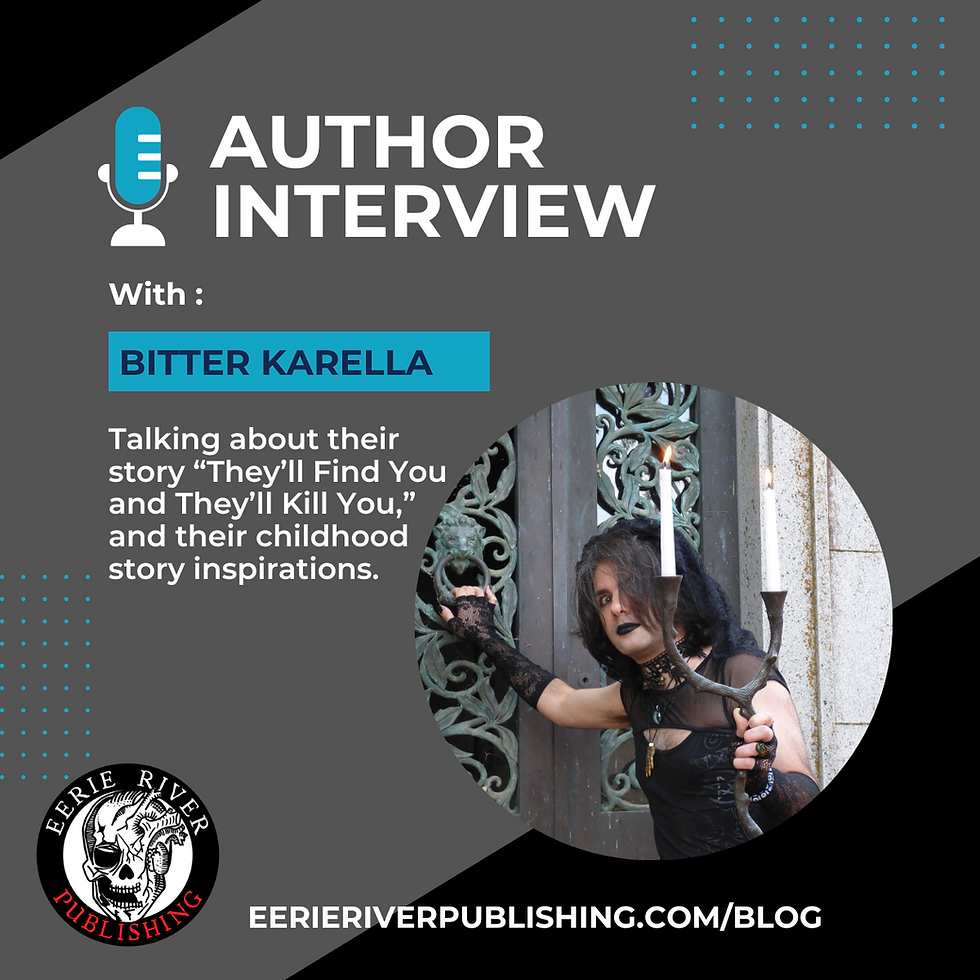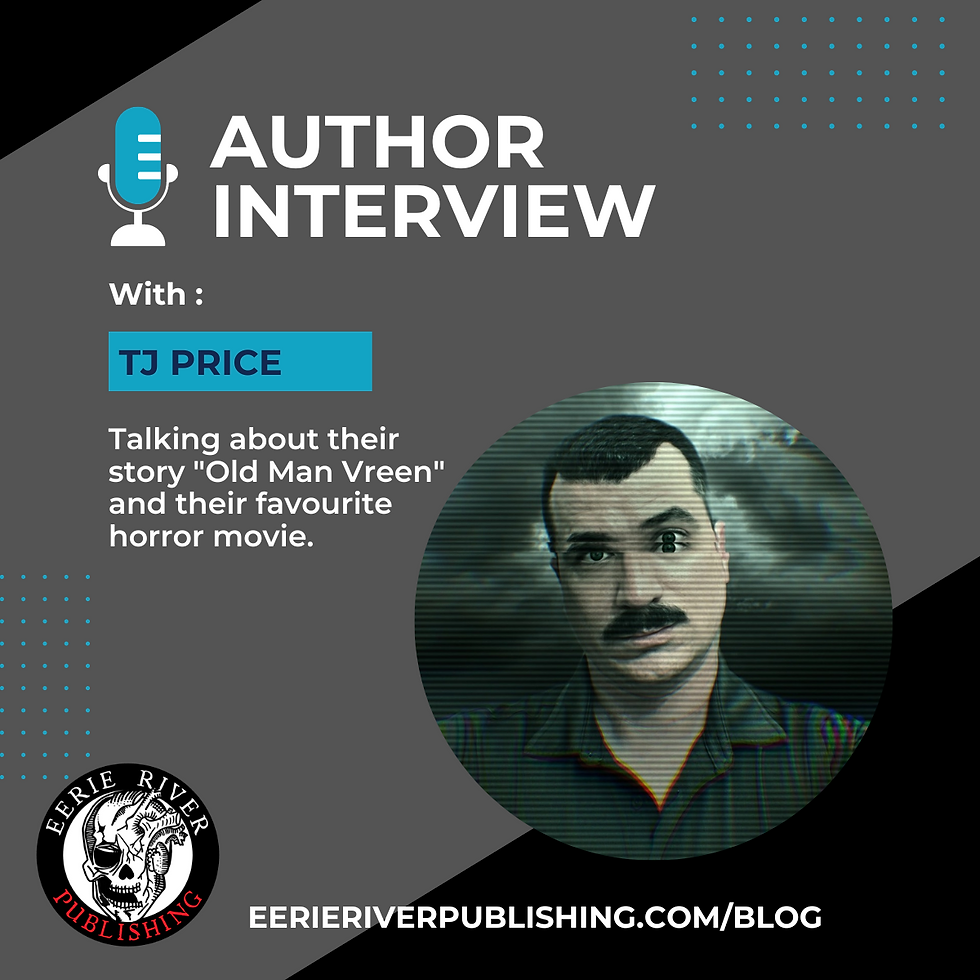WiHM Spotlight: Sarah Jane Justice
- Eerie River

- Feb 7, 2021
- 3 min read
Updated: Feb 8, 2021

Tell us a little bit about yourself and how you became a Woman In Horror writer.
I’ve tried my hand at all styles of writing, from poetry, to music, to spoken word, and everything in between. It’s an interesting story for how I first started writing horror. As part of PTSD, I would experience gruesome, detailed, and graphic night terrors. To take ownership of them, I started writing them into short stories. It worked well for me, and quite a lot of them have been published. In the process, I remembered my love for the genre, and discovered a knack for it. My horror fiction has since been published in print, online, and narrated in podcast format.
Did you know you wanted to write other genres as well as horror? Were you always interested in writing horror specifically?
My first significant successes as a writer were in spoken word poetry. I won quite a lot of awards in the genre, and was even flown to the Sydney Opera House to compete in Australia’s most prestigious slam poetry competition. However, I always secretly preferred writing fiction, and I used the buzz of that success to push myself back into it. I played around with a few different genres, but was quite strongly drawn to horror. It’s so much more fun than literary fiction, and the speculative element opens up so many possibilities for creativity.
Are there tropes, particularly those about women in horror, you actively avoid in your writing?
The trap that I see too many writers falling into is the “strong female character”. I think the problem a lot of people make by setting out to write a “strong female character” is that they make that character’s gender their main defining characteristic, and it often comes off as shallow, or condescending. It’s the wrong approach, and it leads to some very two-dimensional characters. The way to write powerful women is to write a powerful character, with flaws and complications and a fleshed-out background, and to have that character be a woman.
Any advice for girls or women who are considering becoming an author?
Practice speaking about your achievements without talking them down. I was given this advice in a publicity workshop last year. Women are often accused of bragging when we speak openly about our successes, and as such, we don’t talk about them the way we should. To get your pitches heard, and to get the attention of agents and publishers, it helps to become comfortable putting your best achievements out there, unapologetically. On that subject, go to as many workshops as you can. Join writer’s groups, go to writing courses, seek out advice and feedback wherever you can get it. No matter how good you are, or how successful you are, you should always be striving to improve. Listening to criticism is hard, but it’s incredibly useful.
Tell us about the first piece of writing you had published and how that impacted you?
It was a poem about the simple ritual of preparing a meal, and it was published in a themed collection of poetry about food and drink. Like most writers, I look back on my earliest works and cringe, but it helps to remember that they got me where I am today. I remember looking at my name in print, and how much of a rush that was. It definitely spurred me on to write more, and to put more of my work out there.
It’s almost cliche that authors live on black coffee and hard liquor. What are you drinking right now?
I am actually drinking black coffee! I only drink it black, unsweetened. Just pure, untainted coffee. What can I say, I’m a cliché.
Besides horror, what is your favourite genre to read?
Sci-fi. Speculative genres tend to go well together, and I have always loved sci-fi. A lot of my most cherished reads are in various styles of science fiction. I feel that being a Sarah Jane (the name of one of the most beloved Dr Who companions, for the uninitiated) gives me a certain obligation in that regard.
Sarah Jane Justice writes thrilling genre fiction, lyrical poetry, and whimsical character pieces. Her horror fiction has been published by Eerie River Publishing, Black Hare Press, Dark Dossier Magazine, and Hawk and Cleaver. In addition to the written word, she is an award-winning slam poet, and an accomplished singer-songwriter.
In 2021, Sarah will continue to build her fiction catalogue, with work already slated to appear in a number of horror and poetry collections. She is also hoping to release her debut full-length work of fiction, and tour her ekphrastic poetry exhibition ‘Cracks in our Shadows’.
Links:




Comments